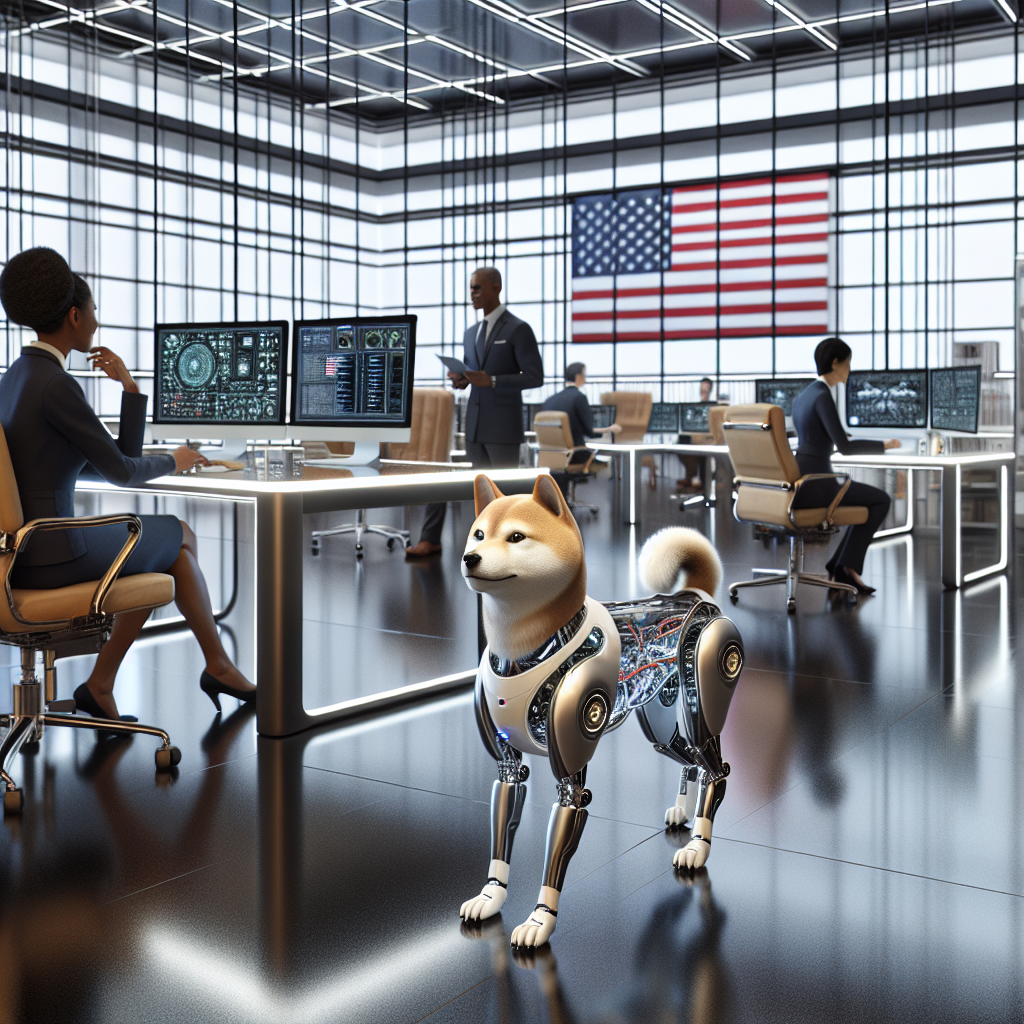A DOGE Recruiter Is Staffing a Project to Deploy AI Agents Across the US Government
In a bold move that merges the realms of cryptocurrency and artificial intelligence, a recruiter known for their ties to the popular Dogecoin (DOGE) community is now leveraging their network to staff a groundbreaking project aimed at deploying AI agents across various branches of the US government. This initiative is not just a technological innovation; it represents a strategic alignment of fun and functionality in the evolving landscape of government operations.
The Intersection of Cryptocurrency and Artificial Intelligence
The Bitcoin boom brought cryptocurrency into mainstream discourse, but its playful counterpart, Dogecoin, has arguably fostered a unique community that thrives on memes, humor, and innovation. The recruiter’s role in staffing a government project underscores the growing recognition of cryptocurrency advocates as serious players in technology and innovation sectors.
This recruitment initiative aims to bring together a diverse pool of talent, including engineers, data scientists, and policy experts, all committed to the ethical deployment of AI technologies. The overarching goal is to enhance efficiency, transparency, and accessibility within government services.
Understanding the Project’s Objectives
The project is multifaceted, with several key objectives driving its development:
1. Enhancing Service Delivery: AI agents can streamline various government services, making them more accessible and user-friendly. Whether it’s answering citizen inquiries or processing paperwork, these agents can significantly reduce wait times and improve satisfaction.
2. Data Analysis and Insights: AI can analyze vast amounts of data to extract actionable insights. By deploying AI across different government sectors, authorities can make informed decisions based on real-time data analysis.
3. Cost Reduction: Automating routine tasks with AI can lead to substantial cost savings. By reallocating human resources to more complex problem-solving roles, the government can increase productivity while minimizing expenses.
4. Improving Transparency: AI can help create systems that enhance transparency in government operations. By implementing AI-driven reporting and analytics tools, citizens can gain better insights into government functions.
The Role of the DOGE Community
The DOGE community is known for its enthusiastic approach to technology and innovation. By involving this community in a project of such magnitude, the government is tapping into a rich vein of creativity and unconventional thinking.
Involvement of the DOGE community brings several advantages:
– Innovative Perspectives: Members of the DOGE community often approach problems with a fresh, unconventional perspective. This can lead to creative solutions that traditional experts may overlook.
– Strong Network: The Dogecoin community has a vast network of tech enthusiasts and professionals who are passionate about their work. Engaging this network can allow the project to leverage a broad range of skills and experiences.
– Motivation Through Culture: The blend of humor and serious work in the DOGE culture can foster a unique environment where creativity thrives, potentially leading to more effective problem-solving.
Challenges Ahead
While the initiative holds great promise, several challenges are inherent in deploying AI agents in government operations:
– Ethical Concerns: The deployment of AI raises ethical questions regarding privacy, bias, and accountability. Ensuring that AI systems are transparent and fair is crucial to maintaining public trust.
– Integration with Existing Systems: Government agencies have legacy systems that may not easily integrate with new AI technologies. A careful approach to implementation will be necessary to avoid disruption.
– Skill Gaps: While the recruitment effort aims to fill roles with skilled professionals, there remains a significant skill gap in the workforce regarding AI and machine learning. Ongoing training and education will be vital.
– Public Perception: Government initiatives can often be met with skepticism. Communicating the benefits of AI deployment to the public will be essential for garnering support and acceptance.
Looking Towards the Future
As AI technology continues to evolve, the potential applications within government operations are virtually limitless. From enhancing national security measures to improving public health responses, AI agents can play a pivotal role in shaping the future of governance.
This project serves as a pilot program that may set the stage for broader adoption of AI technologies across various levels of government. It demonstrates the willingness of government entities to embrace innovation, break away from traditional practices, and respond to the needs of a modern citizenry.
Potential future applications of AI in government include:
– Smart City Initiatives: AI can help manage urban systems, from traffic control to public transportation, optimizing resources and enhancing the quality of life for residents.
– Healthcare Improvements: AI can assist in disease surveillance, predictive analytics, and personalized medicine strategies, leading to more efficient healthcare delivery.
– Crisis Management: AI systems can provide real-time data during emergencies, assisting in crisis response and decision-making processes.
Conclusion
The initiative led by a DOGE recruiter to deploy AI agents across the US government represents a significant leap towards modernizing governmental operations through innovative technology. As the project unfolds, it promises to refine how services are delivered and enhance the overall efficiency and transparency of government functions.
The involvement of the Dogecoin community adds a layer of enthusiasm and creativity that could reshape perceptions of government work. By embracing the synergy between cryptocurrency and AI, this initiative not only sets a precedent for future collaborations but also opens the door for a new era of governance that is informed by technology and driven by community engagement.
As we look ahead, the fusion of these dynamic fields will undoubtedly continue to impact society, providing innovative solutions to age-old challenges. The journey has just begun, and the implications of this project could resonate for generations to come.



